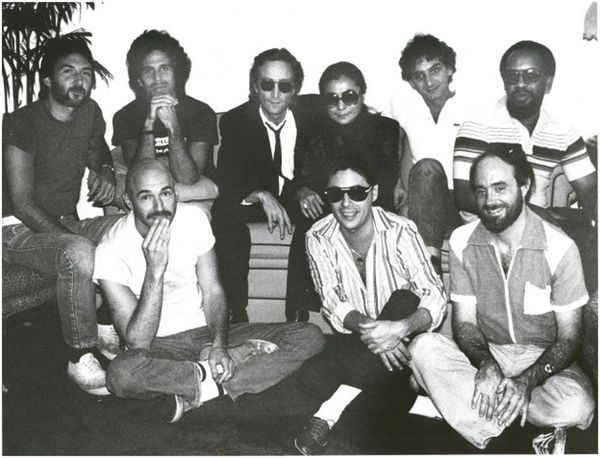
Written with Slick’s musical collaborator Jeff Slate, a gifted writer and guitarist in his own right, "Guitar" hits its finest notes when the musician recalls his passion for mastering the instrument, a journey that has taken the balance of his lifetime. His steadfast pursuit of greatness is marked by an uncommon humility in a world so often known for its runaway bravado. And this sense of unpretentiousness doesn’t merely extend to his musicianship. When the chips are down — when he can’t get a solo career off the ground or a regular gig — Slick checks his ego and sells timeshares to make ends meet.
Not surprisingly, "Guitar" is filled with dramatic descriptions of the instances in which Slick first encounters the artists who would change his life. His first meeting with Bowie makes for an unforgettable scene. “Man, he was skinny as a rake. And pale,” Slick recalls. “He was dressed the way an English rock star might think a Harlem pimp would dress. Loose, baggy pants matched with Capezio dance shoes. It was a weird combo, but very cool, too. And I was especially struck by the way he moved. He was graceful for a rock-and-roll guy. To top it off, he had bright orange hair under a grey fedora. Then, as he got closer, I noticed he didn’t have any eyebrows!”
For Slick, such outlandish moments prove to be par for the course. “David was definitely the strangest cat I’d ever seen, and I’d been around some off-the-wall characters, even at that point in my career.” Later, during the production of Bowie’s "Young Americans" album, Slick would succumb to the substance abuse at the heart of so many rock ‘n’ roll lives — so much so, in fact, that he wouldn’t be able to recall John Lennon — one of Slick’s genuine idols — participating in the sessions for “Fame” and Bowie’s cover version of the Beatles classic “Across the Universe.”

For all of the magic and majesty of his experiences working with the likes of Bowie and Lennon, Slick’s memories are inevitably tempered by the larger-than-life artists’ passage into the arms of history. Lennon’s senseless murder would prove to be devastating, of course, for Slick. Bowie’s death decades later would be harrowing in its own right, given the musicians’ longstanding collaboration both in the recording studio and on the concert stage.
But throughout the whole of his rock ‘n’ roll life — a journey that continues into the present day — Slick remains driven by the seemingly unattainable spark that lingers just beyond his reach, yet motivates him to wake up and do it all over again.







